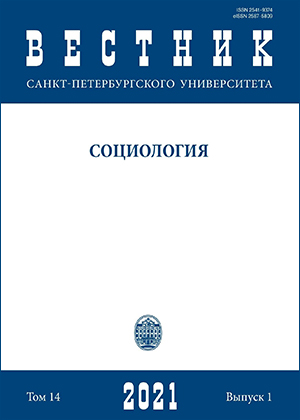Conspiracy beliefs about vaccination: Questionnaire validation
DOI:
https://doi.org/10.21638/spbu12.2021.102Abstract
Vaccination in light of the COVID-19 pandemic is a hot topic in scientific and popular circles. The article presents the adaptation and validation of the questionnaire measuring the propensity to believe in conspiracy theories regarding vaccination (Vaccine Conspiracy Beliefs Scale). The questionnaire consists of 7 statements with 7 response categories in the Likert scale. The work includes translation and adaptation for the Russian sample of the Englishlanguage version of the questionnaire, including forward and backward translation as well as the use of cognitive laboratories. The translation was carried out by three experts, followed by the finalization of the questionnaire version for quantitative analysis. The cognitive laboratory
tested how clear the translation and the investigated construct were for respondents. Data analysis was conducted within the framework of modern testing theory using models from Rasch modeling. The sample consisted of 308 students from Russian universities (average age 20.6 years; SD = 3.9). The quantitative analysis showed satisfactory psychometric characteristics of the questionnaire. A deeper analysis revealed that the sample is divided into two latent classes according to the response style of the test takers. The response style is a specific characteristic of the test-taker, which makes it possible to closer examine the reasons why the testtaker has chosen one or another response option. The study of response styles is an underrepresented area in domestic research and the article contributes to the development of this area while also emphasizing the need to study response styles when using questionnaires. Overall, the article details the methodology for validating measurement tools in the social sciences.
Keywords:
attitude towards vaccination, conspiracy theory, response styles, psychometrics, Likert scale
Downloads
References
References
Downloads
Published
How to Cite
Issue
Section
License
Articles of "Vestnik of Saint Petersburg University. Sociology" are open access distributed under the terms of the License Agreement with Saint Petersburg State University, which permits to the authors unrestricted distribution and self-archiving free of charge.




